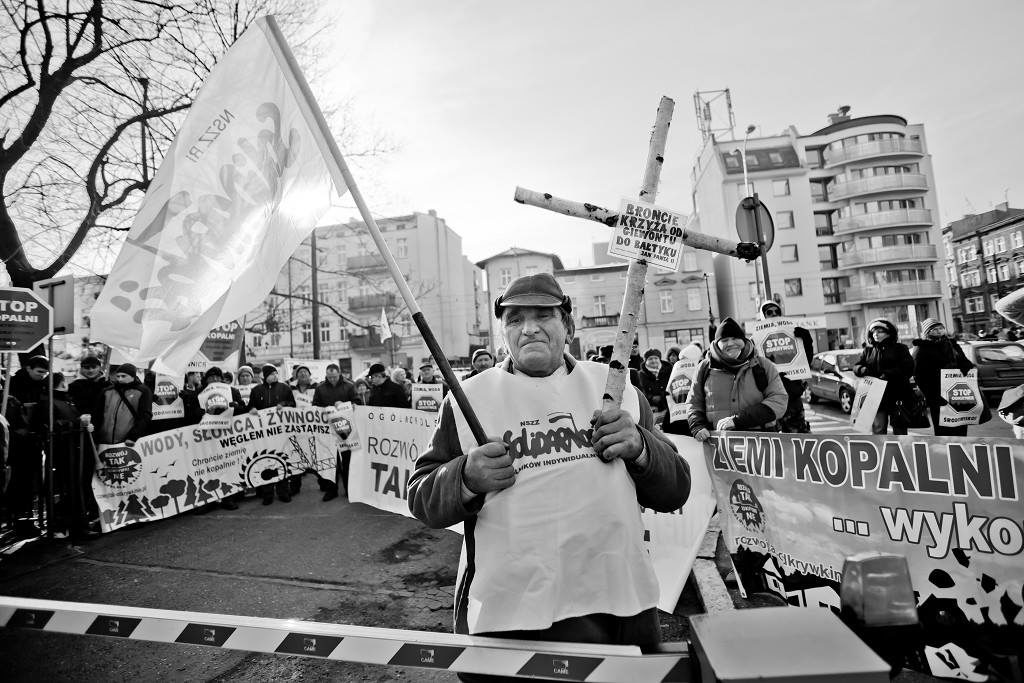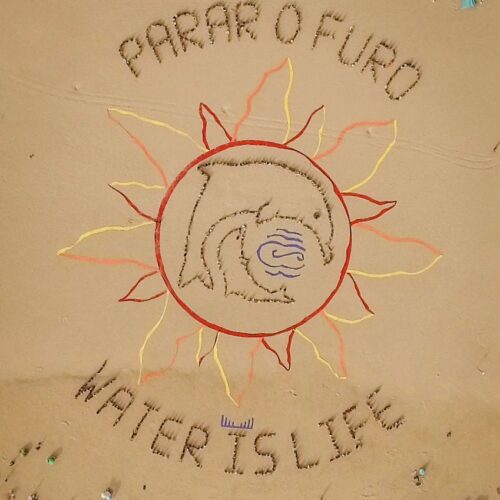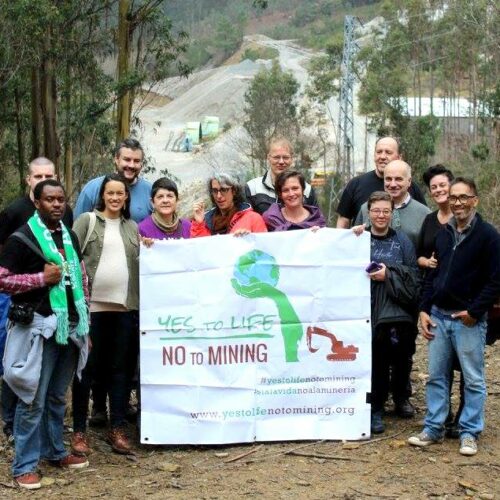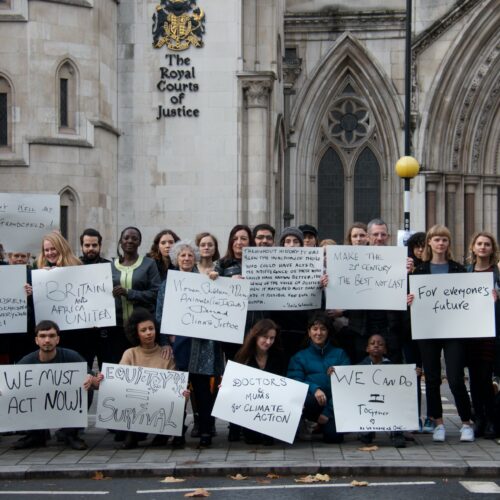Foundation “Development YES – Open-Pit Mines NO” is a special task-force dealing with all aspects of anti-coal and anti-lignite related work in Poland and serving as a crucial bridge between the Polish anti-coal campaigners and diverse range of allies from other countries.
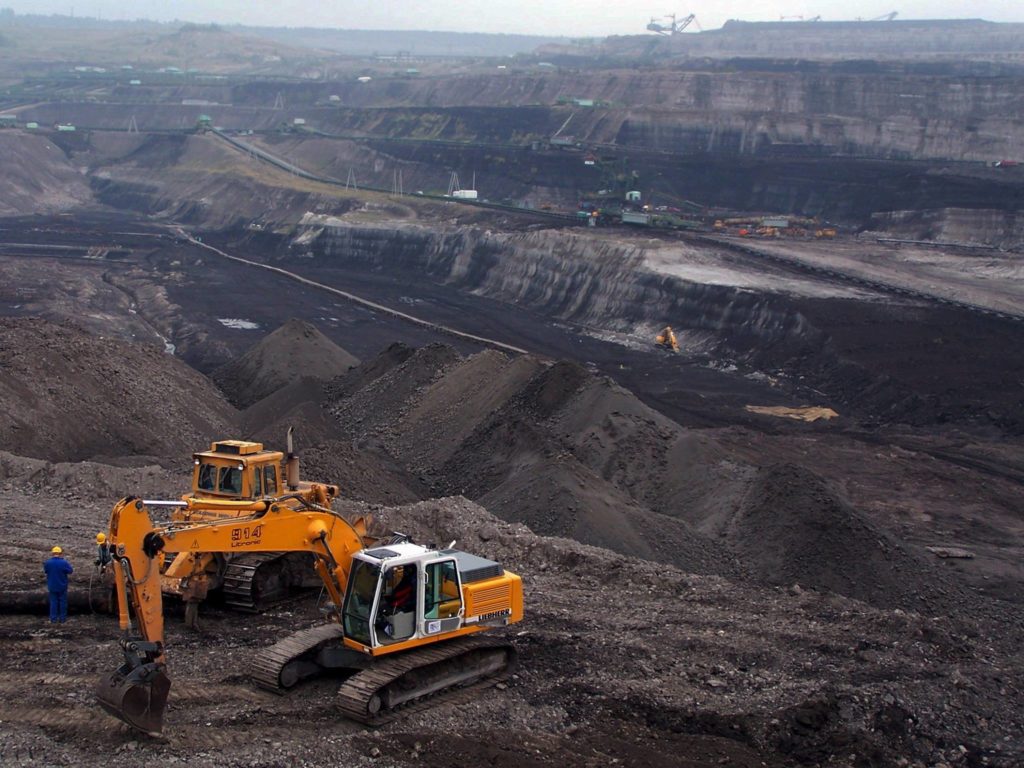
This group’s main mission is to prevent the construction of new coal infrastructure in Poland and if they are successful this will mean over 5,7 billion tonnes of lignite will be kept in the ground. They place special emphasis on new lignite open-pit mines, in order to quicken the demise of coal as one of the major contributors to climate change, water shortage as well as air & water pollution. Their main motivation is to act at the source, helping to keep lignite and coal in the ground, shut down the power plants causing human and environment harm, and through this, create space for more just, equitable and clean growth with more democratic participation. Additionally, as an organisation actively engaged in following the examples of Polish coal companies while targeting the financial institutions (mostly banks and insurers), they are pushing for deep changes in the financial sector and financial institutions and they ways in which they are affecting climate change, and thus deeply transforming this industry as such by increasing its transparency, public accountability, visibility and choices offered to citizens.
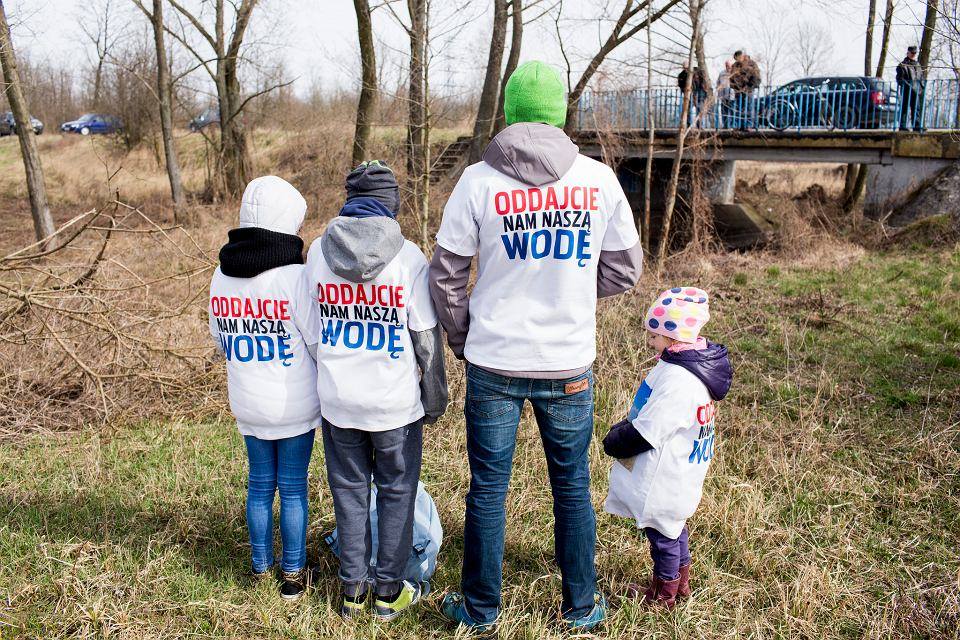
Having been working in this field for a while now, these are some of things they shared with us as key lessons learned:
– Although money is not a guarantee of good campaigning, it does provide a possibility for people to talk and exchange ideas, travel and mobilise or obtain expert support that would otherwise be out of reach for them. Environmental and legal expert opinions as well as travel and preparation of direct actions and bigger protests are both time consuming and costly. What is more, fundraising and reporting do require a substantial time commitment
– Short-term results can be achieved also by focusing on processes or institutions in the country where you want the change to happen (Poland in this case) although there is no way of changing the mindset and the political culture in that given country in the mid and long-term
– Poland keeps opposing EU Climate and Energy Policy
– There is very strong influence of state-owned energy companies on the political decisions, shaping the energy sector in Poland
– Capacity market mechanisms have been adopted that will prop up the economics of the main coal utilities in Poland (PGE, ENEA, Tauron, ENERGA and ZE PAK).
– There is fierce resistance on all levels, including the political one of the ZE PAK and its owner Solorz-Żak (owner of the biggest multimedia conglomerate in CEE) to squeeze as much money out of ZE PAK and thus to prolong the operation of the existing mines and plants to the max, passing on as much cost to citizens as possible
– New legislation aiming to limit access to public information and NGOs involvement in administrative procedures is being prepared in Poland
– Novelisation of the water law created loopholes for new planned lignite open-pit mines
– Their work is increasingly opening up spaces for colleagues from other countries that are have much fewer venues for expression and campaigning (i.e. Turkey or Bulgaria) and we are increasingly able to support them in national capacity building and bringing their concerns to the international financial institutions and other state and non-state actors in EU-28.
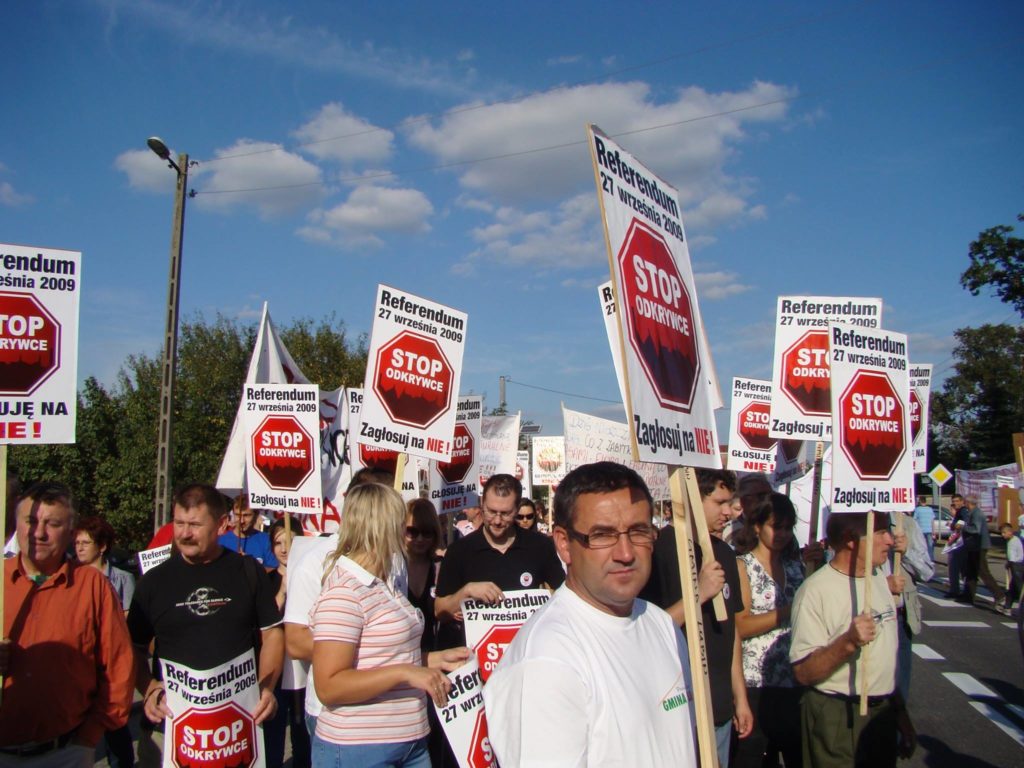
The Guerrilla Grant
Following discussion, it was clear that the most needed and useful contribution we could have was to offer core funding for the anti-coal work of the small and dedicated, seven-person team of the“Development YES – Open-Pit Mines NO” Foundation. Therefore a quick summary of some of things they are working on this year and that we will horizontally support is best:
a) Organisation of the first climate camp in Poland
b) Providing advice, information and support to key international partners and movements regarding climate summit in Poland in December 2018 (COP24)
c) Journalist investigation into criminal practices and human rights abuses of one of the Polish utilities in Poland
d) Mobilisation of local authorities opposing hard coal mining in Silesia to engage in joint protests
e) Communication of the results of a big legal analysis of how coal mining in the EU endangers the Water Framework Directive a crucial piece of legislation safeguarding the water quality in the EU-28
f) Work on pushing the insurance industry together with UnFriend Coal coalition to stop providing risk cover for the coal industry and to divest their assets from coal companies globally using Polish coal companies as an example
g) And most of all, thanks to this wide range of activities keep 5,7 billion tonnes of lignite in the ground in Poland and force a faster closures of some of the most polluting lignite power plants in Europe
